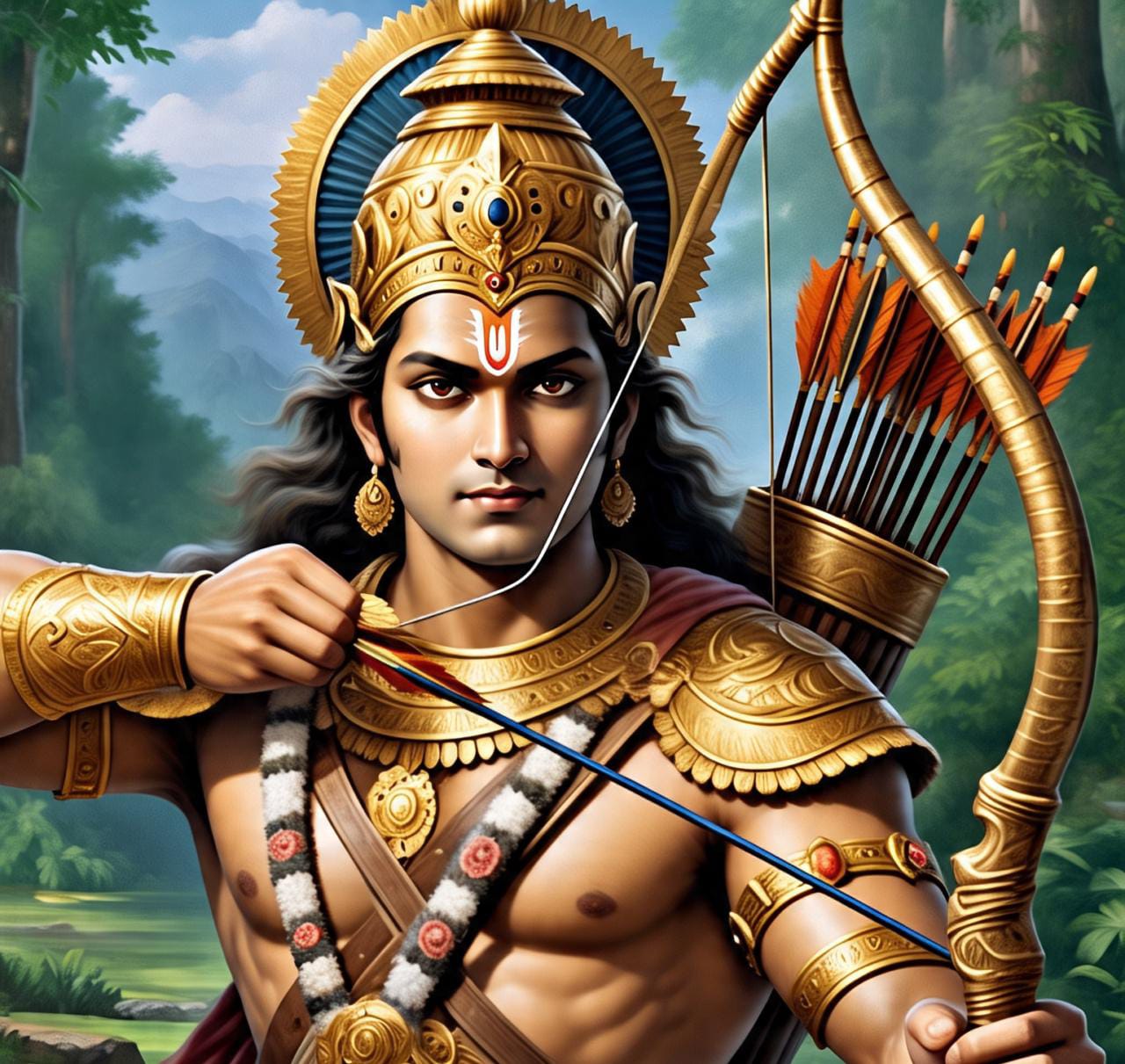A hindu Tale: The Three Curses That Shaped Mahabharata

The Mahabharata is one of the greatest stories ever told. It is filled with gods, warriors, magic, and lessons about life. But did you know that three powerful curses helped shape this entire epic? Yes! These curses changed the lives of many characters and even led to the great war of Kurukshetra.
Let’s explore the three most important curses that changed the Mahabharata forever.
1. Gandhari’s Curse – The Mother’s Pain
Who was Gandhari?
Gandhari was the mother of 100 Kauravas, including Duryodhana, who was the eldest. She was a noble queen who wore a blindfold all her life to share her blind husband’s world.
After the Kurukshetra war, all of Gandhari’s 100 sons died in battle. She was filled with sorrow. When Lord Krishna came to see her, she was angry.
She said, “You could have stopped this war, Krishna. You had the power to prevent this destruction, but you didn’t.”
In her deep grief, Gandhari cursed Krishna:
“Just like I lost my sons, you too shall see the end of your clan—the Yadavas. They will fight among themselves and destroy each other.”
Did it come true?
Yes. Years later, the Yadavas started fighting and destroyed themselves. Even Krishna quietly left the world after this. Her curse became one of the most powerful truths of the Mahabharata.
2. Karna’s Curse – The Warrior’s Misfortune
Who was Karna?
Karna was the eldest son of Kunti, born before her marriage, and the secret brother of the Pandavas. But no one knew this for most of his life. Karna was raised by a charioteer’s family and always faced rejection, even though he was a great warrior.
He wanted to learn from Parashurama, a teacher who hated Kshatriyas (warriors). So Karna pretended to be a Brahmin (a priest) to become his student.
One day, when Parashurama was resting on Karna’s lap, a bug bit Karna. He didn’t move, afraid he’d wake his teacher. Blood flowed, and Parashurama woke up.
He was shocked. “Only a Kshatriya can bear such pain without crying. You lied to me!”
He cursed Karna, saying, “In your most important battle, your knowledge of weapons will disappear when you need it the most.”
Did it come true?
Yes. During Karna’s final fight with Arjuna in the war, his chariot got stuck, and he forgot how to use the divine weapon. That curse led to his defeat.
3. Urvashi’s Curse – Arjuna’s Humble Phase
Who was Urvashi?
Urvashi was a beautiful celestial dancer from heaven. She lived in Indra’s court and was admired by many gods.
When Arjuna, the third Pandava, went to heaven to get divine weapons, Urvashi fell in love with him. But Arjuna refused her love, saying, “You are like a mother to me.”
Urvashi felt insulted and cursed Arjuna, “You will become a eunuch (a person who loses manhood) for one year!”
Did it come true?
Yes. During the Agyatvas (year of hiding), Arjuna used this curse as a blessing. He disguised himself as a dance teacher named Brihannala and taught dance to a princess. No one recognized him, and the Pandavas remained safe.
Why Are These Curses Important?
Each of these curses had a huge impact on the Mahabharata:
- Gandhari’s curse brought an end to Krishna’s powerful Yadava clan.
- Karna’s curse led to his defeat and death in the war.
- Arjuna’s curse helped the Pandavas stay hidden during exile.
They remind us that in epic stories, even a few words spoken in anger or sadness can change the future.
What We Can Learn
These curses are not just magical events. They teach us life lessons:
- Words have power. Never curse or speak in anger.
- Truth matters. Karna’s lie to his teacher brought great pain later.
- Every curse can become a blessing if you handle it wisely—just like Arjuna did!
Hidden Forces Behind a Great Story
The Mahabharata is filled with mighty battles and deep wisdom. But hidden behind all the action are moments like these curses—silent but powerful, shaping the story from behind the curtain.
Now you know that even a whisper of anger, a tear of pain, or a lie can become a turning point in history.